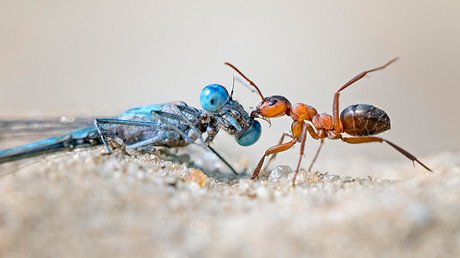Only way is down: Man has reached his physical peak, says French study

Mankind has had a good innings: people have become physically stronger, average life expectancy has risen in almost all nations, global population has topped 7 billion. But now scientists have issued a dire warning – the only way is down.
Humans have reached the maximum limit for physical performance, height and lifespan, according to a new scientific review conducted by the Paris Descartes University in France.
Assessing historical records related to human physiology going back 120 years, scientists at the French university are questioning evolutionary forecasts, such as the idea that life expectancy will increase indefinitely.
“These traits no longer increase, despite further continuous nutritional, medical, and scientific progress. This suggests that modern societies have allowed our species to reach its limits,” said professor Jean-Francois Toussaint, an author of the review. “We are the first generation to become aware of this,” he said.
READ MORE: ‘Do Not Resuscitate’ tattoo baffles Florida docs (PHOTO)
The newly published study indicates that, genetically, humans are unlikely to advance further in age. Interestingly, too, the paper says sporting events like the Olympic Games may become a more humdrum affair as record-breaking feats become fewer.
Perhaps more terrifying is the inference that environmental and societal changes are likely to lead to a decline in human welfare. Physical fitness in Western Europe is of particular concern as the research predicts there will be “reduced physical activity in most developed societies.”
“This will be one of the biggest challenges of this century as the added pressure from anthropogenic activities will be responsible for damaging effects on human health and the environment,” Toussaint said.
READ MORE: ‘Start of real change’: New migraine drug cuts attacks by 50% – study
“The current declines in human capacities we can see today are a sign that environmental changes, including climate, are already contributing to the increasing constraints we now have to consider.”
However, it’s not all doom and gloom, and Toussaint argues that knowing one’s limits can be positive. “Now that we know the limits of the human species, this can act as a clear goal for nations to ensure that human capacities reach their highest possible values for most of the population,” he said. “With escalating environmental constraints, this may cost increasingly more energy and investment in order to balance the rising ecosystem pressures.”














